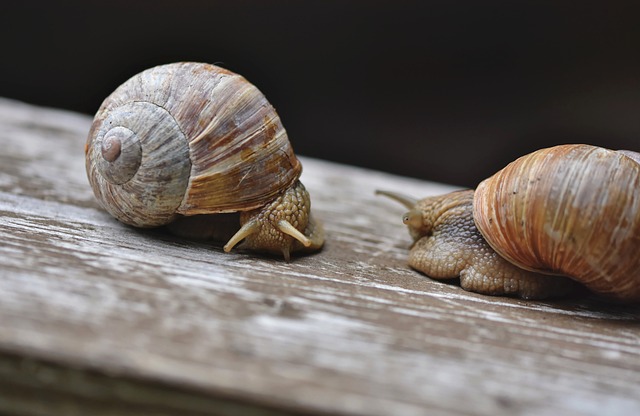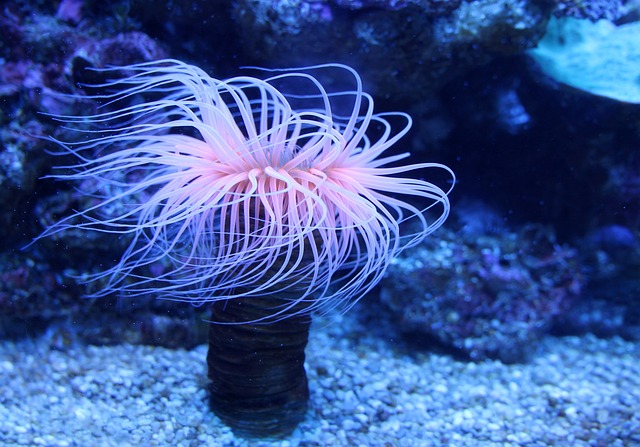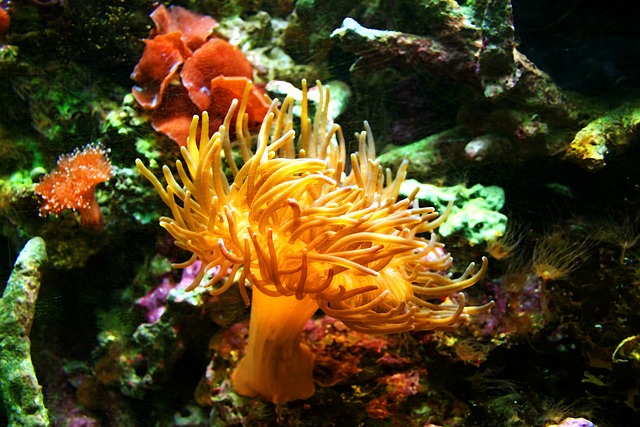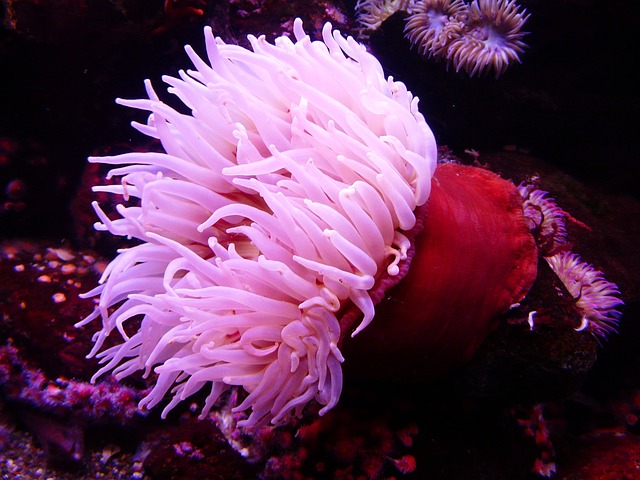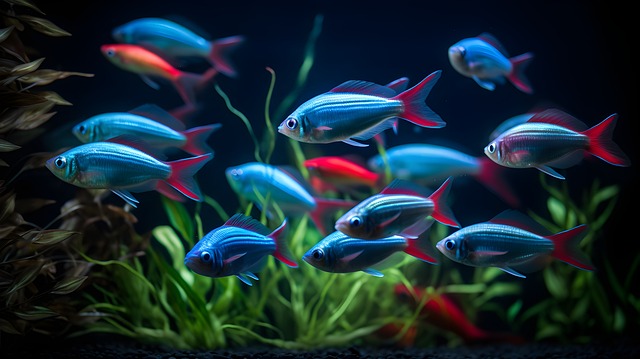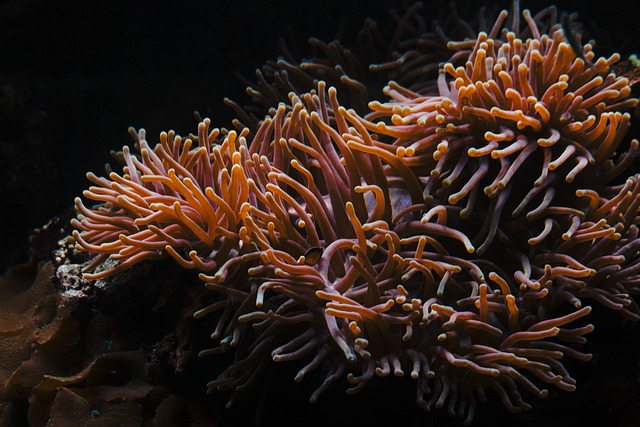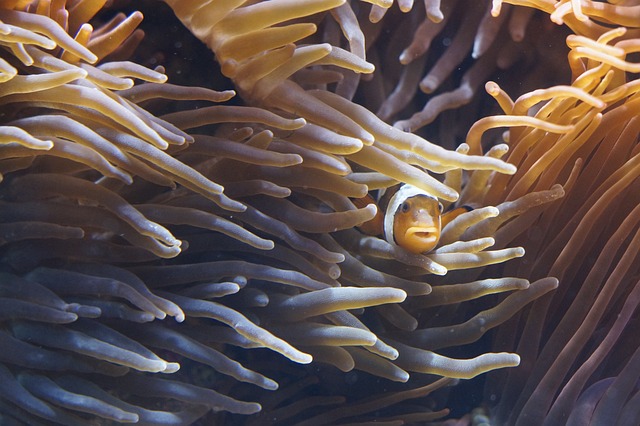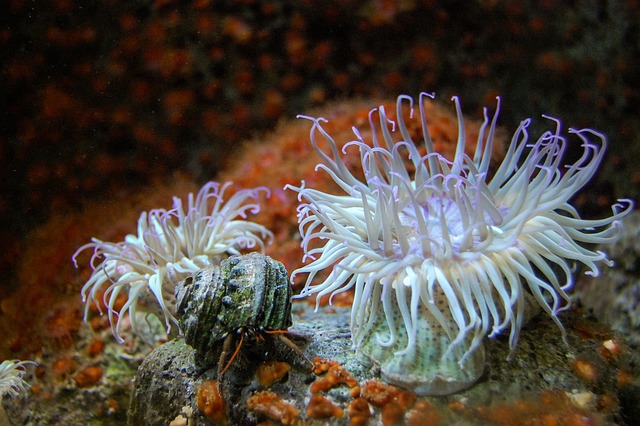Mystery snails and African cichlids are both popular choices for aquarium enthusiasts. While they may seem unlikely tank mates, many wonder if they can coexist in the same aquarium.
The answer is not a straightforward yes or no, as it depends on several factors.
Understanding the habitat requirements, dietary needs, and behavioral traits of mystery snails and African cichlids is crucial in determining whether they can live together.
Mystery snails prefer a freshwater environment with a pH between 7.0 and 8.0, while African cichlids require a higher pH of 8.0 to 9.0.
Additionally, cichlids are known to be territorial and aggressive towards other fish, while mystery snails are peaceful and non-aggressive.
Key Takeaways
- Compatibility between mystery snails and African cichlids depends on several factors, including habitat requirements, dietary needs, and behavioral traits.
- Mystery snails prefer a pH between 7.0 and 8.0, while African cichlids require a pH of 8.0 to 9.0.
- African cichlids are known to be territorial and aggressive towards other fish, while mystery snails are peaceful and non-aggressive.
Habitat Requirements of Mystery Snails and African Cichlids
Water Conditions
Mystery snails and African cichlids have different water requirements, and ensuring that the aquarium’s water conditions cater to both species is essential.
Mystery snails are freshwater creatures that thrive in water with a pH range of 7.0 to 8.0 and a hardness level of 150 to 300 ppm. On the other hand, African cichlids require alkaline water conditions, with a pH range of 7.8 to 8.6 and a hardness level of 200 to 400 ppm.
Temperature Requirements
Temperature is another crucial factor that affects the habitat of mystery snails and African cichlids. Mystery snails thrive in water temperatures ranging from 68°F to 82°F, while African cichlids require a higher temperature range of 75°F to 85°F.
It is essential to maintain the appropriate temperature range in the aquarium to ensure the comfort and health of both species.
Aquarium Size
The aquarium size is another factor to consider when keeping mystery snails and African cichlids together. African cichlids are territorial and require ample space to swim and establish their territories.
A minimum tank size of 55 gallons is recommended for African cichlids, while mystery snails do not require much space and can thrive in smaller tanks.
In summary, mystery snails and African cichlids have different habitat requirements, and it is crucial to ensure that the aquarium’s water conditions, temperature, and size cater to both species’ needs.
With proper care and attention, these two species can coexist in the same aquarium and create a beautiful underwater ecosystem.
Dietary Needs of Mystery Snails and African Cichlids
Mystery Snails Diet
Mystery snails are omnivores, meaning they eat plant and animal matter. They can eat various foods, including algae, decaying plant matter, and even small fish or shrimp.
However, it is essential to note that mystery snails are primarily herbivores, and their diet should consist mainly of plant matter.
Some suitable food options for mystery snails include:
- Algae wafers
- Blanched vegetables (such as zucchini or spinach)
- Crushed snail or shrimp pellets
- Live or frozen brine shrimp or bloodworms
It is essential to avoid overfeeding mystery snails, as they can quickly become overweight and suffer from health problems.
African Cichlids Diet
African cichlids are also omnivores, but their diet should consist primarily of animal matter. They feed on small fish, insects, and crustaceans in the wild. In captivity, they can be fed various foods, including pellets, flakes, and frozen or live foods.
Some suitable food options for African cichlids include:
- High-quality cichlid pellets or flakes
- Frozen or live brine shrimp, bloodworms, or krill
- Small feeder fish (such as guppies or minnows)
- Insects (such as crickets or mealworms)
It is important to note that African cichlids can be aggressive feeders and may bully other fish in the tank. Monitoring their feeding behavior and ensuring that all fish in the tank receive adequate food is important.
Behavioral Traits of Mystery Snails and African Cichlids
Mystery Snails Behavior
Mystery snails are peaceful and slow-moving creatures. They are usually active during the day and rest at night. They climb out of the water and lay their eggs on the tank walls, plants, or decorations. They are herbivores and feed on algae, vegetables, and fish food.
Mystery snails are known for their ability to close their operculum, a hard plate that covers their shell opening, to protect themselves from predators. They can also retract their body into their shell when threatened.
African Cichlids Behavior
African cichlids are known for their aggressive behavior. They are territorial and can become aggressive towards other fish in the tank, especially during breeding.
They also dig in the substrate and move rocks and decorations around the tank.
African cichlids are omnivores and feed on various foods, including small fish, insects, and algae. They are active during the day and rest at night.
When introducing African cichlids to a tank, it is essential to provide enough hiding places and territories to prevent aggression and territorial disputes. It is also recommended to keep them in groups to reduce aggression towards other fish in the tank.
Overall, it is essential to consider the behavioral traits of mystery snails and African cichlids before keeping them together in a tank.
While mystery snails are peaceful and slow-moving, African cichlids can be aggressive and territorial. Proper tank setup and monitoring can help ensure a peaceful coexistence between these two species.
Potential Challenges and Risks
Aggression Issues
Aggression can be a major concern when it comes to keeping mystery snails with African cichlids. African cichlids are known for their territorial nature and can be highly aggressive towards other tank inhabitants.
This can include snails, which may be seen as a threat to their territory.
Mystery snails are relatively slow-moving and may be unable to escape from aggressive cichlids. In some cases, cichlids may even attack and kill snails.
This can be especially true if the cichlid is larger or more aggressive than the snail. Therefore, it is essential to carefully consider the type of cichlid species and their temperament before introducing them to a tank with mystery snails.
Health Risks
Another potential risk of keeping mystery snails with African cichlids is the spread of disease. Cichlids are known carriers of certain diseases and parasites that can harm other tank inhabitants. These diseases can be transmitted through direct contact or contaminated water.
Mystery snails can be particularly susceptible to disease and may be unable to fight off infections and other tank inhabitants.
This can make them more vulnerable to illness and can potentially lead to their death. Cichlids may also carry parasites that can infect snails and cause health problems.
To mitigate these risks, it is essential to maintain good water quality and hygiene in the tank. This includes regular water changes, maintaining appropriate water parameters, and avoiding overfeeding.
It is also recommended to quarantine new fish and snails before introducing them to an established tank to prevent the spread of disease.
Conclusion
In conclusion, keeping mystery snails with African cichlids is not recommended. While they may be able to coexist peacefully in some cases, the risks outweigh the benefits.
African cichlids are known for being aggressive and territorial, and they may view the mystery snails as a threat to their territory. This can result in the cichlids attacking and potentially killing the snails. Additionally, African cichlids tend to dig and rearrange the substrate, disrupting the snails’ environment and stressing them out.
Furthermore, mystery snails have specific water parameter requirements that may not align with those of African cichlids. They prefer slightly acidic to neutral water with a pH range of 7.0-8.0, while African cichlids thrive in harder, alkaline water with a pH range of 7.8-8.6. This difference in water chemistry can lead to health issues for the snails.
In summary, adding mystery snails to an African cichlid tank may be tempting for aesthetic purposes or to help with algae control. However, it is not recommended due to the potential risks and incompatibility between the two species. Keeping mystery snails in a separate tank with compatible tank mates and water parameters is best.

